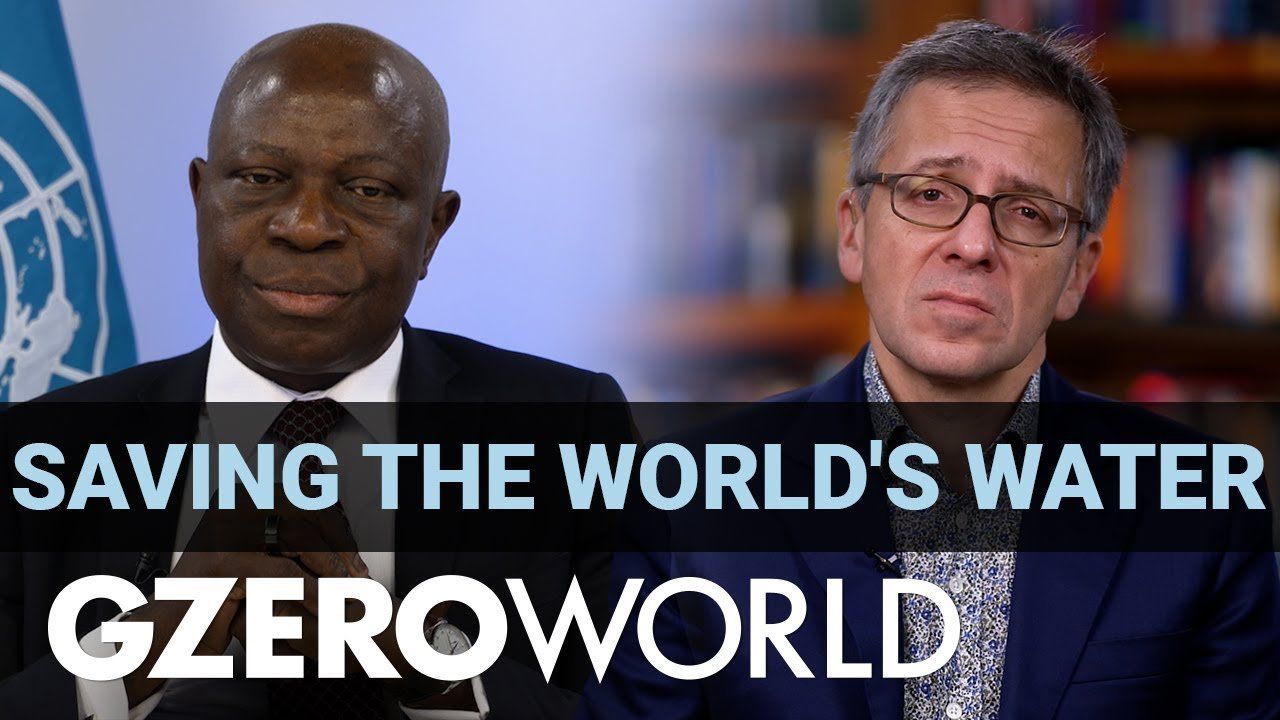GZERO World with Ian Bremmer
The uncomfortable truth about water scarcity

The uncomfortable truth about water scarcity | GZERO World with Ian Bremmer

Water is critical to life, yet billions of people worldwide lack access to it. Gilbert Houngbo, Chair of UN-Water, sheds light on this critical issue on GZERO World. Houngbo attributes the water crisis to both "lack of resources and bad governance," and stresses the need for investment in water-related infrastructure to help solve the problem.
"We as a global society have taken water for granted," Houngbo says, "Water must become everyone's business." Agriculture alone accounts for up to 75% of global fresh water use, so investing in technology to reduce waste and also plan for climate change is key. Houngbo also highlights the importance of developing metrics to measure progress in addressing water scarcity, particularly in rural areas, and cautions against private companies leaving the most vulnerable populations behind.
Despite the challenges, Houngbo remains optimistic that society can meet the global water challenge through policies that ensure access to basic water services, encourage water reuse, and minimize pollution risks.
Up to four billion people—half the world’s population—experience at least a month of severe water scarcity each year. The international community must come together to protect the earth's most precious resource for future generations, Houngbo tells Ian Bremmer.
People in support of former South Korean President Yoon Suk Yeol rally near Seoul Central District Court in Seoul on Feb. 19, 2026. The court sentenced him to life imprisonment the same day for leading an insurrection with his short-lived declaration of martial law in December 2024.
65: The age of former South Korean President Yoon Suk Yeol, who was sentenced to life in prison on Thursday after being found guilty of plotting an insurrection when he declared martial law in 2024.
In an era when geopolitics can feel overwhelming and remote, sometimes the best messengers are made of felt and foam.
The Hungarian election is off to the races, and nationalist Prime Minister Viktor Orbán is facing his most serious challenger in 16 years.
Does skepticism rule the day in politics? Public opinion data collected as part of the Munich Security Conference’s annual report found that large shares of respondents in G7 and several BRICS countries believed their governments’ policies would leave future generations worse off.